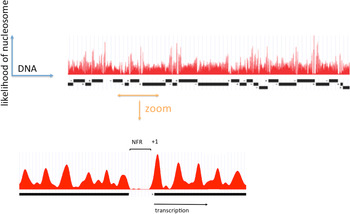

We adapt proven HTR and Keyword Spotting (KWS) technology developed by CO-OP READ ( Transkribus API) and optical character recognition (OCR) to the needs of social scientists.Ĭurrent projects and previous realisations: THOTH offers an integrated and automated solution to collect data from historical sources.

Turning historical documents into datasets The data is then used by the machine to recognise similar script in other images and to transcribe it automatically. The linguistic meaning of these patterns has to be "taught" by a palaeographer familiar with the source by transcribing a suitably large sub-sample for the AI to learn specific scripts.

Darker pixels picked out from lighter page background allow AI pattern recognition of handwriting script. Handwritten Text Recognition (HTR) exploits machine learning technology to recognise idiosyncratic handwriting styles and transcribe them into useful digital information. THOTH automates tasks 2-4 to make extracting meaningful data on a very large scale faster and more affordable, hence unlocking the potential of advanced statistical analysis of large historical sets of sources. The task is more arduous for sources with complex layouts, including tabulated data, such as censuses, administrative records, civil registers etc. One persistent obstacle for the application of quantitative techniques to un-digitised sources is the time (and cost) required to: (1) film documents, (2) transcribe them, (3) extract meaningful data and, (4) structure them into usable datasets. Unlocking the potential of big data for the humanities and social sciences THOTH is a collaboration between Oliver Dunn, Alexis Litvine and Yiannos Stathopoulos ( Computer Science). THOTH: Transcribing Historical Objects with Tabulated Handwriting The following people in the Department are involved in this project: Different outcomes from your earlier focus group(s) can reinforce similar findings and identify changes before your next focus group.This is a project of the Demography, health and wellbeing research theme, and The Cambridge Group for the History of Population and Social Structure research group, both part of the Department of Geography's Vital Geographies thematic research group.

Quotes from focus group participants help craft a message or determine the best course of action in the future. Our transcriptionists bring their education and current experience in industry, business, government, and the non-profit sectors to the job when they work with you.Ī good focus group can surprise you with unexpected points of view that might change your way of seeing an issue, product, process, or campaign. It also requires familiarity with subject matter. When you want to draw upon the attitudes, beliefs, feelings, opinions, and reactions of multiple participants, a focus group transcription helps you hone-in on what is important not only in the marketplace of commerce, but the marketplace of ideas.Īt Cambridge Transcriptions SM our U.S.-based transcriptionists understand that a focus group transcript requires experience transcribing audio that is open-ended, broad, and qualitative. You can partner with Cambridge Transcriptions SM to overcome these hurdles. With multi-speakers, accents, dialects, speaking styles, and even languages, an audio recording alone often limits the comprehension and retention of key findings and ideas.Īdded to these considerations, the most common difficulty in creating an audio-to-text transcription of a focus group is poor sound quality.


 0 kommentar(er)
0 kommentar(er)
